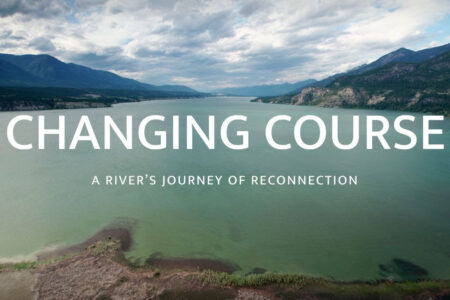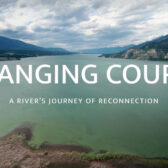The Paris Agreement: I Wanted More!
“Now is the only time. How we relate to it creates the future. What we do accumulates; the future is the result of what we do right now.” –Pema Chödrön
After 14 days of marathon negotiations, 195 countries united around a global agreement on climate change at the UN summit in Paris. It is a fundamental first move towards a global low carbon transition that just might keep world temperatures below 2°C.
As someone who has been championing a sustainable environment for more than 40 years, I see the Paris Agreement as a long overdue breath of fresh air and a triumph of diplomacy. But it is missing some vital ingredients.
Put simply, the agreement marks a transition from action by a few to action by all – yet the actions depend on voluntary pledges called Intended Nationally Determined Contributions.
These pledges were made before the summit and reflect what each country was willing to do not what the science demanded. The national contributionsassociated with the Paris Agreement would lead to a median warming of around 2.7°C by 2100 – but only if all governments fully implement their pledges.
Clearly the Paris Agreement sets the stage for a significant ramp up of emissions reduction targets if the world is to hold warming well below 2°C and to pursue efforts to limit the temperature increase to 1.5°C above pre-industrial levels.
If the world’s leaders are even slightly serious about reaching those targets, they have to start doing everything possible immediately.
Their pledges will be revisited in 2018 prior to the agreement coming into effect in 2020. Time is already a wasting and instead the stage could be set for three or five more years of inaction.
Canadian targets “inadequate”
For instance, Canada came to Paris with a promise“to achieve an economy-wide target to reduce our greenhouse gas emissions by 30% below 2005 levels by 2030.”
This translates to a 21% reduction below 2005 emissions levels excluding forestry, or 2% below 1990 levels and was rated “inadequate” by Climate Action Tracker.
The Climate Change Performance Index 2015 ranks Canada 58th out of 61 countries and states “nothing has changed and nothing is going forward at state level. Canada is about to miss its 2020 emissions reduction target by about 20% and the only effective policies in place are provincial initiatives.”
Canada’s citizens will have to trust that new Prime Minister Justin Trudeau will be able to convince 10 provincial and three territorial premiers to do better than the feeble promised INDC proposed by the former Harper government.
Kevin Anderson, Deputy Director of the Tyndall Centre for Climate Change Research, summed up the Paris negotiations this way: “Aspiration and rhetoric will not deliver reductions in CO2 emissions; we need to deliver action,” said Anderson. “The current text is not consistent with the latest science. The Copenhagen text included aviation and shipping emissions, that together are as large as the emissions of the UK and Germany combined, but they are not mentioned in the Paris text.
“There’s an absolutely huge disconnect between the negotiations and the political rhetoric, and what’s very clearly coming out of the science,” Anderson added.
On the journey to sustainability?
In Paris the world appears to have finally made the choice to embark on the journey toward sustainability instead of sticking to the current destructive “business-as-usual” pathway. The agreement specifies that anthropogenic greenhouse gas emissions and removals have to “balance” in the second half of this century.
Yet the agreement contains no blueprint of the steps industry and individual companies will need to take to adapt their business practices and models to move down a trajectory consistent with an energy transition that delivers a climate secure global energy system.
Julie Anne Richards is the international Policy Manager of the Climate Justice Programme, an Australian climate group that launched the Carbon Levy Project, which proposes that the oil, gas and coal industry should fund the loss and damage mechanism included in the COP21 agreement.
According to a 2013 study co-authored by Richards entitled, “Carbon Majors Funding Loss and Damage”, a mere 90 companies account for 63% of the carbon going into the atmosphere.
“It’s time to make them pay for their climate damage,” says Richards.
Her conclusions were verified in another report in 2014by Richard Heede of Climate Mitigation Services of Snowmass, Colorado.
ExxonMobil – under investigation in New York for misleading investors and the public about the risks of climate change – has contributed 3.22% of the human-made CO2emissions in our atmosphere, the equivalent amount contributed by 24 countries in 2010.
Yet the word “fossil” doesn’t appear a single time in the Paris Agreement despite the fact that fossil fuel combustion is the source of about 60% of global greenhouse gas emissions and the main driver of emissions growth.
The end of the oil and coal age should have been spelled out in the agreement; instead countries are supposed to “aim to reach global peaking of greenhouse gas emissions as soon as possible.”
Carbon Fee and Dividend Needed
What the world should have agreed to is a carbon fee and dividend program that returns the fee collected to each individual household. This is the proposal made by the Citizens’ Climate Lobby. Such a program would protect low income households and cause everyone to reconsider their consumptive habits.
Instead the agreement includes a section that raises the prospects of greater use of carbon markets and carbon pricing mechanisms, but it stopped short of backing calls for a global carbon pricing system.
Former NASA climate scientist James Hansen was in Paris pushing for the carbon fee and dividend and he has condemned the world community for failing to take this bold step.
“As long as fossil fuels appear to be the cheapest fuels out there, they will be continued to be burned,” said Hansen, calling the agreement “a fraud” and “just worthless words.”
Bill McKibben, Naomi Klein and Greenpeace’s Kumi Naidoo are among 60 climate action leaderswho are of the same mind as Hansen and have launched a new push for governments to introduce a global levy on fossil fuel extraction.
The group will “work to introduce a global fossil fuel extraction levy to ensure that the people facing the worst impacts of climate change are compensated by those that caused the problem.”
Peer-reviewed scientific research has concluded that in order to meet the 2C target we need to leave at least 80% of coal, 50% of gas and 30% of oil in the ground. Nothing in the agreement restricts the fossil fuel industry from pushing us past the point of no return.
“You have to raise the price of carbon steeply and quickly, so everyone gets a clear signal to get off of it,” McKibben wrote in a Guardianopinion column.
Vancouver Sun columnist Don Cayo, in his recent review of the Carbon Tax Center’s report on BC’s carbon tax, concluded: “no government’s emission-reduction goals can succeed as long as they shy away from a price on carbon.”
Escaping blame
What the Paris Agreement shies away from is penalizing the countries – primarily the United States and Western Europe – that got rich by damaging the environment.
There is no punishment if a country doesn’t live up to its commitments other than possible negative reaction from other countries, financial markets, or its own citizens.
Developed countries don’t have to pay any more than they are currently contributing ($100 billion a year) to assist developing countries adapt to climate change and transition to clean energy. That amount won’t be reassessed until 2025.
Small island states that will undoubtedly suffer irreparable damage by rising temperatures and seas got only a portion of their demands.
While the parties to the accord agreed on a process to determine what approaches and arrangements are needed to best address the needs of those countries and communities who have contributed least but are impacted most from climate change, the document contains a provision preventing anyone from using the agreement to hold anyone actually liable for the damage they’ve done.
It’s a signal – again
So the Paris Agreement is not an all-encompassing plan to save the world but rather a signal to all of us that a greener future is seriously needed. The barons of capital – the stock markets, banks, and the investment community – are supposed to intuit that now is the time to invest in the low carbon economy.
A much similar signal was delivered by the 1972 book Limits to Growth, which predicted the collapse of civilization sometime in the 21st century unless solemn action was taken to curb resource consumption. It is the best-selling environmental book of all time and convinced me to work to protect the planet and its civilization.
Dr Graham Turner is a lecturer with the Office for Environmental Programs and research fellow at the Melbourne Sustainable Society Institute (MSSI), University of Melbourne. He also co-directs the Simplicity Institute. Turner is the scientist who has done the most work updating the data underpinning the original Limits to Growth analysis.
In 2008, Graham Turner’s study concluded that “the data comparison presented here lends support to the conclusion from the Limits to Growth that the global system is on an unsustainable trajectory unless there is substantial reduction in consumptive behaviour, in combination with technological progress.
His 2014 study concluded “we have squandered the past decades, and that preparing for a collapsing global system could be even more important than trying to avoid collapse.”
In a 2014 opinion piece written for The Guardian, Graham Turner and Cathy Alexander summed up their research this way: “It seems unlikely that the quest for ever-increasing growth can continue unchecked to 2100 without causing serious negative effects – and those effects might come sooner than we think.”
Then they wisely counselled “maybe it’s time to think about how we protect ourselves as we head into an uncertain future.”
It’s up to us – you and me
The Paris Agreement notes that “climate change represents an urgent and potentially irreversible threat to human societies and the planet.”
We have reached a point where no more compromises or trade-offs are possible. As McKibben has written, we are no longer negotiating with other countries around a table, we are “negotiating with physics, and physics holds all the good cards.”
Now it is up to all of us. Pema Chödrön wrote in Taking the Leap that as human beings we have the potential to disentangle ourselves from old habits. “We have the capacity to wake up and live consciously, but, you may have noticed, we also have a strong inclination to stay asleep,” she added.
Taking the leap, Chödrön wrote, involves making a commitment to ourselves and to the earth itself. Deep down in each of us is a well of courage waiting to be discovered.
Change yourself and you help change the world. The promises of Paris should fuel our ambition. We have no time to sleep on it.
“Let us consider the way in which we spend our lives.” – Henry David Thoreau
Michael Jessen is a Nelson-based eco-writer and consultant. His business Zero Waste Solutions assists companies, communities, and individuals to implement sustainable ideas and initiatives. He is the author of Discarding the Idea of Waste: The Need for a Zero Waste Policy in BC; So $mart: Creating Jobs, Saving Money and Energy, and Generating Tax Revenue; The Need for a Nelson Energy Saving Trust; and Think Energy Free: How to Build or Rebuild a Low Carbon Home. He can be reached by email at zerowaste@shaw.ca

























